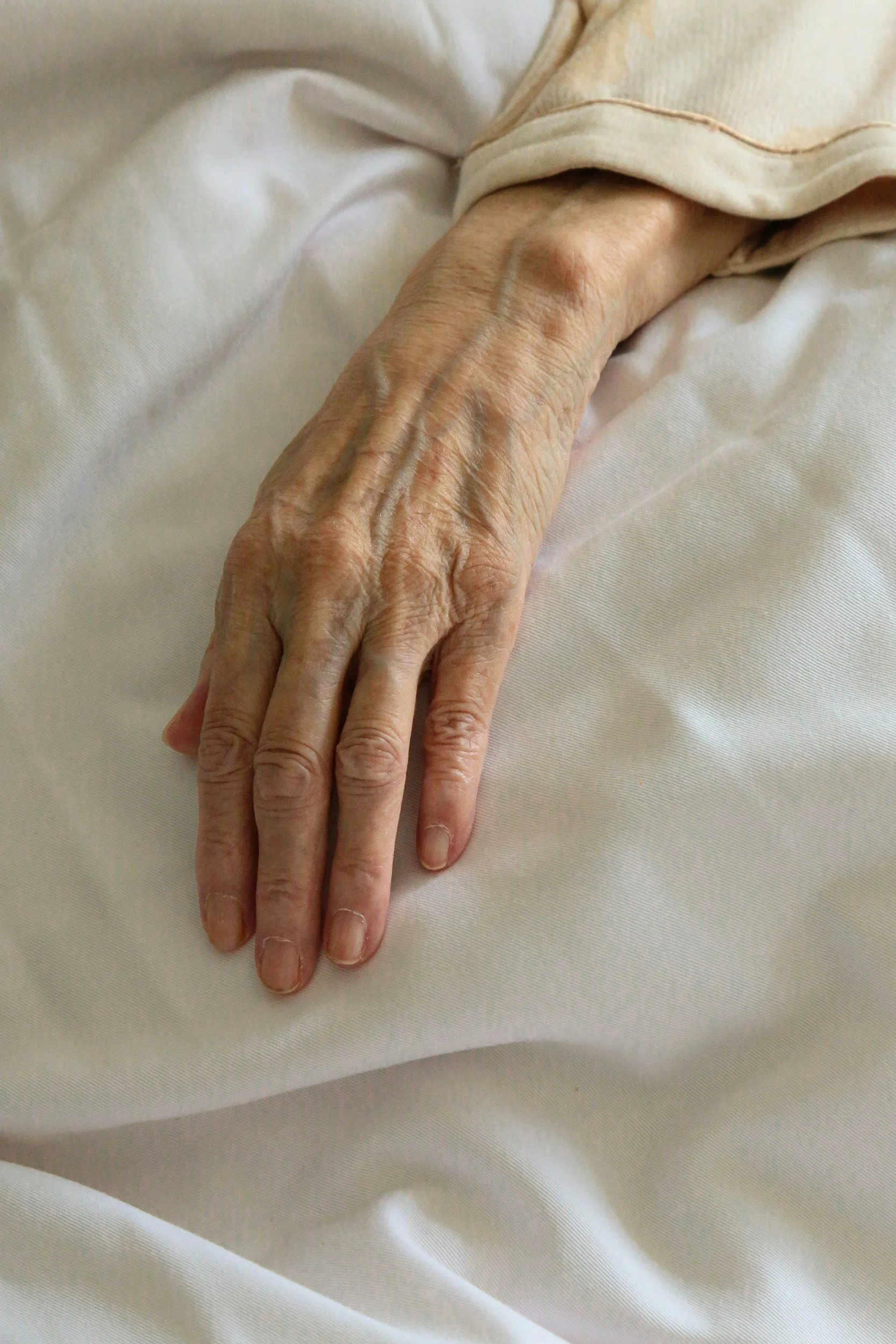Even Home
Front Yard
The oak tree out front sprawls, and the driveway sleeps contentedly under a blanket of its yellow pollen as we park, leaving tire marks through the fallen powder. My dad sings along to Lynyrd Skynyrd as we pile out of the car. Dad shreds an air guitar, making my brother and I laugh while my mom rolls her eyes.
“Everyone needs to help unpack!” she announces. The music shuts off abruptly as my dad pulls the keys from the ignition. My thoughts shift excitedly to our cats after four long days camping. I can see two of them poking their heads against the front window screen, ears and tails perked up in excitement that their family has arrived.
It says something special about a home when you’d rather be there than on vacation. This home is my safety, my happiness. It holds my love. It has seen me through every high and low, holding me through every moment.
As my mom presses the key into the door and we walk inside, bags in hand, the AC and smell of home hit me. I fill with peace.
Years later, when my parents put the house on the market, I was dumbfounded. Naively, I assumed this would always be our home, that I would return here throughout my life. It would stay my beloved place of refuge.
When a newly married, retired couple purchased it after only two days on the market, I cried. After my parents listed our home, I thought I would have at least a few months to say goodbye.
After moving all I had ever known into a new place, one objectively better but could never be the same, I stepped foot in my home one last time. I regret not saying goodbye. I have an image in my head of standing in its center, its heart, and thanking it aloud for being my home, telling it that it always will be. But I was hurt, and instead I slammed the front door and backed out of the driveway one last time.
Months after the new couple moved into the house, at ten o’clock on a weeknight, the neighbor down the street takes his dog out to do its business before bed. It’s a typical Florida February night: chilly, but not cold; humid, but not stiflingly so. The old family has moved out of the home down the street; he watched the children grow from a young girl and boy to grown adults. When the family moved, it was only surprising because they had been there so long. The new couple seem nice enough, always in the yard raking leaves from the sprawling live oak and watering delicate, pink flowers they planted their first week. Secretly, he is glad they are an older couple: aside from grandchildren occasionally visiting, no kids run regularly around the sidewalks. His wife is disappointed, but he is glad for the peace and quiet older neighbors tend to carry.
He yawns as he spaces out and considers this; he does not expect to hear a haunting scream. Does not expect to hear the slam of a front door and a shrieking “help!” Does not think he will be running down the street, dragging his dog’s leash, heart pounding in his throat. Does not know what to do the first half of a second he sees his new neighbor laying bloody in the mulch of her front lawn, pink flowers crushed beneath her as she sobs, “He’s going to kill us!” She screams again, and her pained gaze catches his own startled one. His fingers dash across his phone screen, and the numbers beep the dial tone for 911.
Foyer
When I am twelve, I host a Bible study club at my house for other middle-school-age girls. It’s a fun opportunity to get together and mess around, joking and laughing and petting my cats as they enter the room, curious, then dash away as five of us reach to pet them all at once. We share our favorite Bible verses and what they mean to us. We talk about things weighing on our growing minds—usually feeling insecure or worrying about upcoming tests—then pray together. We sit cross-legged in a circle on the foyer rug, clasp hands with the girls on either side of us, and take turns asking God for peace, for love, for guidance, for protection in a mean world.
This home is a place for community, and it knows it.
Muddy boot prints adorn the same rug as a woman screams outside. She is newly retired and should be enjoying her and her husband’s newfound time together in their new home. The tread marks of the boots obscure shaggy, turquoise swirls on a cream-colored rug. They are heavy, angry, erratic; they mar this place that has, so many times, been holy. They are marks of the mean world.
Living Room
Like so many nights, I sit on the tan leather couch in my family’s living room. Every inch of the place is etched in my mind: every hairline crack in the plaster, every mark in the wood floors, every piece of furniture, and every sound it makes. There’s a couch pillow on my lap, and its inner feathers dig into my skin. My dad sits across from me, a Scrabble board between us; much to my playful frustration, he is winning. The TV in our entertainment center we’ve had my whole life plays some show about people buying a house in France. My mom sits in her spot on the couch watching it while trying to drown out the sounds of dad’s competitive jeers. My brother lies on the floor playing his Nintendo DS while our cats saunter over and sniff him to figure out what he’s doing on the ground.
It is the perfect picture of familial domesticity, of peace and love and bonding. This is what I have known my whole life, blessedly. My family has always been here, and we have always been close. Our home is an extension of that, and it, too, feels like a member of the family. It stays a silent companion and protector.
A couple sits together on the same tan leather couch, a nightly game of solitaire on the cushion between them. The house is cozy and peaceful for them in the same way it was for my family; they are newly married late in life, and this is their dream: comfort and domesticity. The woman matches a five of diamonds to a six of spades. A knock sounds at the front door, pounding in its intensity. A confused glance at one another, and the man stands and moves across the living room, across the foyer, to answer. When he turns the handle and swings open the door, his son stands before him, pupils blown wide. The man does not doubt, with a swooping pit in his stomach, the cause is a copious amount of drug use. The son’s arm twitches, and he lunges forward to hug his father; the man pats him on the back before pulling away. He does not plan to invite his son into his new house, so he does not. His son, rather, pushes his way inside and does not acknowledge his father’s wife.
“I need money, dad,” he says, tracking muddy boot prints on the foyer rug. The man shakes his head.
“We gave you five hundred last week. What happened to that?”
“I used it,” the son says, still twitching and fidgeting as he paces around the living room. The woman sits silently on the couch, watching and wringing her hands.
“We can’t keep giving you this kind of money. We don’t have it.”
The son blinks and snarls. “You just bought this fucking house; don’t tell me you can’t spare some money to take care of your own son.”
“That’s why we can’t give you any; we just don’t have it,” the man says. He does not mention the fact that the last thing he wants is to fuel his son’s drug addiction.
The son laughs, wild and loud. The woman flinches where she sits. “Fucking typical. You waste your money on a big ass house for you and your new bitch, and you forget about your own son. I need the fucking money, and I’m going to get it. Give it to me!”
Dread floods the man’s chest; he adopted his boy years ago, saved him from an abusive situation, encouraged him to enlist in the army, to learn some discipline. But it still wasn’t enough to keep him from the fate of an addict. He can’t keep fueling this—he refuses. “We’re not giving you any money,” he says. He knows as soon as the words leave his mouth it is a mistake.
Kitchen
When I am ten, I stand in the kitchen with my mom and watch her prepare dinner. She narrates as she goes, explaining what she is doing and why she is doing it. I listen intently and look on as she boils noodles, mixes ingredients for sauce, heats up oil in a pan on the stove. When she pulls out an onion and two knives from the wooden block on the chilly granite countertop, she turns to me and says, “I’m going to teach you how to chop an onion. Go grab the stool from the pantry.” I run and drag out a white plastic step stool and stick it up against the counter, then stand on it excitedly and await further instructions.
Mama begins by cutting the onion in half on a bright blue cutting board, then places one half in front of me and one in front of her. She shows me how to cut it, chopping away from my fingers and making them thin, then going back over them to create little squares to be cooked in the pan. The smell is funny, and tears spring in my eyes. Mama laughs kindly and wipes them from my eyes and cheeks. “Onions make you cry when you cut them, isn’t that funny? It’s like they don’t want to be chopped, and they make you feel bad for doing it.” That makes me laugh, too, because I’m ten, and I know foods don’t really have feelings. I cut my half of the onion faster than my mom cuts hers, and then she shows me how to cook them down in the pan with oil.
When we’re done cooking, we serve dinner at the dining room table next to the kitchen. Although all I did was chop half an onion, my mom says I cooked the meal. My dad beams and tells me I’m a natural. It makes me feel warm inside, though maybe it’s the heat coming from the still-cooling stove in the kitchen.
There is shouting in a place that has only ever known love and family. Not shouting like an argument, like something that can be forgiven and made up, but shouting like evil. Shouting like there will never be another good thing to happen within these walls of love, of peace, of home.
The son lunges into the kitchen and yanks a knife from the block on the cold granite countertop. The woman gasps loudly from the couch, and the man takes a step back with his hands springing into the air.
“Give me the fucking money!” He shouts and runs towards his father.
The woman stands up off the couch and screams. “Stop it!”
The son swings the knife wildly at his father but misses, slashing into the couch, instead. A scuffle, in which furniture flips over, and people shout and scream in terror. Then the son lets out his own angry cry and stabs the man in the head; he falls immediately.
In his mild shock and overwhelming feeling of satisfaction, the son does not notice the woman has dashed from the living room to the kitchen and stands on the linoleum tile behind him. She slams a cutting board over his head, and he groans and falls to his knees, holding his bloody skull. She runs out the door, but not before he reaches out and slashes her shin with the kitchen knife.
Blood floods the hardwood floors that once only knew kindness, that were once tread on by a girl and a boy the house watched grow. Floors I know every inch of, every imperfection and scratch and all of the smallest details. Maybe the hardwood feels betrayal being left behind to this fate. I think it must be scared and sad, wondering where the love went.
Bedroom
When I am four, my parents tuck me in every night. My dad picks me up and swings me through the air, gently in reality, but wildly from my tiny perspective, though I never doubt for a second that I am safe. He tosses me on my bed, and I shriek and laugh in delight, then settle down as he pulls the covers up over my chin and kisses my forehead. Then my mom lays down next to me, strokes my white-blonde hair, and sings me a lullaby. There is no one in the world with a voice more beautiful than mama’s singing: “round your head, flowers gay, set you slumbers ‘til day…” My eyes droop with the feeling of ultimate peace and security filling up my chest like a hot air balloon. The glow-in-the-dark stars on the ceiling that have watched over me for as long as I can remember fade out of my mind’s eye. My stuffed rabbit sits contentedly in the crook of my arm. To this day, I have never known a safer place.
The bedroom has lain empty for months since the man and woman moved in—a place for the woman’s granddaughter to stay when she visits from Indiana.
Now she will never visit.
Screams and crashes echo through the house and reach the bedroom where an abandoned bed hears every horror. The silver walls and bright pink carpet stand at attention. They must be on edge. They must wonder how this could happen, wonder where I went, why I never stopped to say goodbye, to thank them for being there all those years—not that they existed for the thanks. They must wonder who let such evil into this home.
They must feel the blood pooling in the other room, permeating the floors, the walls, the air with its bitter, metallic scent. It’s a part of it all, now. Time drags along the death of everything, even love, safety, sacredness. Even this. Even home.
-Emily Rose Miller
Emily Rose Miller (she/her) graduated magna cum laude from Saint Leo University where she received her BA in English with a specialization in creative writing. Her work has been published in Capsule Stories, PopMatters, and Red Cedar Review, among others. Find her online at emilyrosemiller.weebly.com, on Instagram and Twitter @actualprincessemily and @Em_Rose_Miller, respectively, or in real life cuddling with her five cats.





















